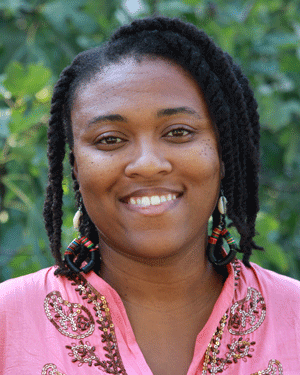Alexis Patterson, PhD Joins Faculty
The School of Education welcomes our newest faculty member: Alexis Patterson, PhD, who joins us this fall as an Assistant Professor of Elementary Science Education. Her interests are in science education, urban education, small group work, and social-emotional intelligence. “The School of Education’s emphasis on diverse learners is so important to me,” said Alexis. “That’s the heart and crux of my research—better understanding diverse learners and increasing the pathways for them to science fields.”
Alexis decided to pursue a research degree after watching her former middle school science students in inner city Oakland schools struggle socially when they went on to elite high schools. “In middle schools, these students had faced police harassment, not having enough to eat, living in the inner city—they’d had difficult struggles,” she said. “But in high school they were experiencing a new sense of oppression and cultural isolation. They would call and tell me how they were struggling to integrate in these environments where they were the minority not only in terms of race or ethnicity but also class and income. Academically they were doing fine, but they were short-circuiting on social interactions when faced with this new form of social oppression.”
Alexis describes herself as a teacher educator and researcher, and was drawn to the position because it would allow her to pursue both. “I think teaching teachers is the most important thing we can do,” she said. Alexis will be teaching elementary science methods and a science education literacy and policy course in addition to conducting research into how we can increase the participation of women and underrepresented minority populations in the sciences at the elementary school level.
“I want to research how we can create more equitable experiences in the sciences for our marginalized students,” Alexis said. “When I was an Oakland science teacher I worked in schools that had majority populations of minority students, and they loved science. One of the barriers to their science participation is in the experiences they have in the classroom. I’ll be exploring the role of social-emotional skills in supporting students to have more equitable interactions in the classroom and beyond.”









